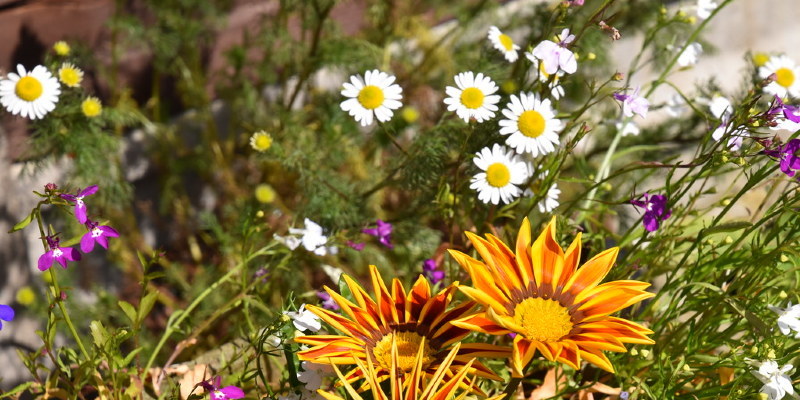
How to Stop Weeds With Plastic
Thin sheets prevent future weed growth on your vegetable or ornamental garden beds and can kill weeds. While weed growth that is further stops after you plant solarization approaches use plastic to prepare beds. Plastic keeps soil moisture so you can use less water, while warming the soil.
Soil Solarization
Weeds can be stopped by clear vinyl until you set on your garden bed. Sunlight passes through the vinyl, and the heat becomes trapped, effectively cooking the seeds and weeds near the soil surface. You need to till in almost any fertilizer or amendments until you solarize, since buried but still viable weed seeds can be turned up by tilling. After moistening the soil, cover the bed with two – to 4-ml vinyl. It requires four to six weeks of sunshine to kill the weeds, so use this method during summer’s sunniest aspect.
Plastic Mulch
Plastic works best on beds, since the vinyl will tear and require replacement each year. Red plastic is sometimes employed for annual vegetable crops such as tomatoes (Solanum lycopersicum), which might benefit in the red reflected light. The vinyl blocks oxygen and sun so they grow or can not germinate. Your desirable plants to grow and receive sunlight are allowed by holes from the plastic. Plastic doesn’t allow moisture penetration, however. Installing a drip irrigation system on the top of the bed before placing the vinyl is preferable; at which the soil is exposed at the bottom of the plants differently, you need to water every plant.
Mulch Installation
Before you put in the plastic, any amendments or compost should be added to the backyard . After setup, soluble fertilizers are the change you can add. Following the soil is prepared and some other drip systems are installed, place the vinyl on the soil surface. Overlap the edges by 6 inches so weeds will not grow between the joints. The edges require anchoring so they don’t blow up. You are able to place soil or rocks or anchor them down. Cut a hole in the plastic for every plant, which makes it big enough so you can plant the roots without the resting against the stalks.
Maintenance Tips
Water pools on the surface of plastic mulch. Poking a few holes enables the water to drain into the soil, but many pockets makes it easier for weeds to permeate throughout the vinyl and invade the garden bed. The soil also warms up. Although this is beneficial in weather early in the season, it can stress plants. Covering the plastic using a layer of straw helps cool down the bed. Should you use plastic in a decorative garden, the unsightly plastic can be camouflaged by a layer of bark mulch. Eliminate plastic at the end of this season, since it will not decompose in the backyard or in a compost pile.